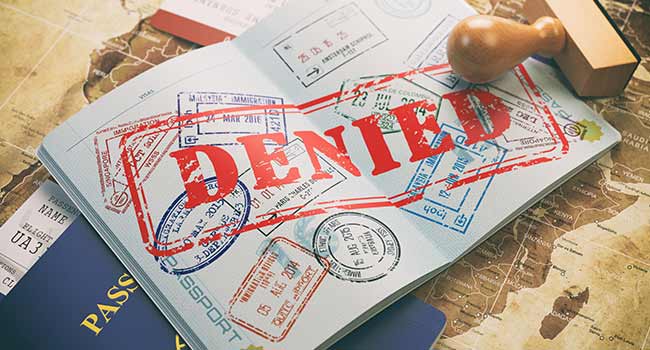
The United States Mission in Nigeria has announced that visa applicants are now required to disclose all social media usernames and handles used in the past five years as part of the DS-160 visa application process.
- The United States now requires visa applicants to list all social media handles used in the past five years as part of the DS-160 application process.
- Applicants must certify the truthfulness of their information, with failure to disclose social media details leading to possible visa denial.
- Critics argue that these policies strain U.S.-Africa relations and may limit opportunities for individuals from the continent.
This new measure, which extends across most non-immigrant visa categories, reflects Washington’s growing emphasis on digital footprint checks as a tool for national security and immigration vetting.
According to the disclosure on the UN mission’s X page, applicants must certify that all information provided on the DS-160 form is true and correct before submission.
The U.S. Mission noted: “Visa applicants are required to list all social media usernames or handles of every platform they have used in the last five years on the DS-160 visa application form.”
“Applicants certify that the information in their visa application is true and correct before they sign and submit. Omitting social media information could lead to visa denial and ineligibility for future visas.”
U.S. authorities warn that failing to disclose social media information, or deliberately omitting certain accounts could result in visa denial and render the applicant ineligible for future visas.
The policy signals a broader tightening of immigration procedures under President Donald Trump, who has repeatedly vowed to overhaul America’s visa system and strengthen security vetting.
Trump’s new immigration rules hit Africa
The United States has rolled out a wave of new immigration measures that heavily impact African countries, marking one of the sharpest clampdowns on entry rules under President Donald Trump.

Washington has defended the moves as necessary to curb illegal migration and safeguard national security, but the policies have drawn criticism across the continent.
In June 2025, Trump signed a proclamation imposing sweeping travel bans on Chad, Eritrea, Sudan, Libya, Somalia, and Equatorial Guinea, while restricting visa categories for Burundi and Sierra Leone.
That same month, his administration introduced a visa bond pilot program requiring applicants from Malawi and Zambia to deposit up to $15,000, and paused routine visa processing for Zimbabwe.
Earlier in the year, African states were once again excluded from the U.S. Visa Waiver Program, while a controversial refugee plan prioritizing white South Africans sparked widespread condemnation.
More recently, Nigeria rejected U.S. pressure to host third-country deportees, underscoring mounting diplomatic friction.
These developments reflect Trump’s broader immigration agenda, which has expanded visa restrictions, tightened conditions for student and work permits, and instructed consular officials to apply stricter vetting standards.
In addition, visa applicants must now disclose all social media handles used over the past five years, giving U.S. authorities wide discretion to examine digital activity.
In Nigeria, one of the largest sources of U.S. visa applicants in Africa, the measures have stirred unease among travelers, students, and businesspeople, who fear that legitimate opportunities are being closed off.
Analysts argue that while the policies are framed as security safeguards, they risk straining U.S.–Africa relations and limiting mobility for millions across the continent.












